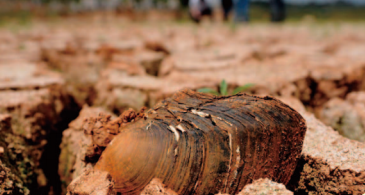Managing water as China warms: New insights from regional models


Key Messages
- With water supplies per capita only 25% of the global average, and uneven rainfall already causing frequent floods and droughts. China must prepare for shifting water regimes under climate change. The Adapting to Climate Change in China (ACCC) research policy project shows how the latest climate modelling can be linked with impact assessment and decision-making across different sectors, including water
- Climate change is one of a number of pressures affecting water resources in China. Population growth, urbanisation and industrialisation are increasing demand and polluting sources. At the same time, climate change is making flows more variable and amplifying drought and flood patters
- Although climate models agree warming will continue, rainfall projects are less certain. However, the prevailing pattern of ‘north dry, south wet’ looks set to persist; exacerbating water scarcity in some northern regions, which are important for agriculture.
- As China’s economy grows and competition for water intensifies, China will need to develop robust systems for managing water in an uncertain but increasingly volatile climate, particularly in the water-scarce north. This may require a new style of adaptive management, combining use of non-traditional sources such as urban waste water with better management of existing storage, and much more emphasis on water conservation and reallocation.
This brief has been produced by Professor Wang Guoqing, Nanjing Hydraulic Research Institute, Research Center for Climate Change of Ministry of Water Resources ([email protected]) and Roger Calow, Head of ODI’s Water Policy Programme and an Honorary Research Associate at the British Geological Survey.
Read more ACCC publications relevant to National Adaptation Planning in China:
- Understanding past and future impacts of climate change in agriculture: implications for adaptation planning
- User-friendly climate science: communicating data for decision-making
- Policy-ready projections: making climate models more useful to planners
- Climate change and its impact on population health in Southern China: Implications for adaptation policy
(0) Comments
There is no content